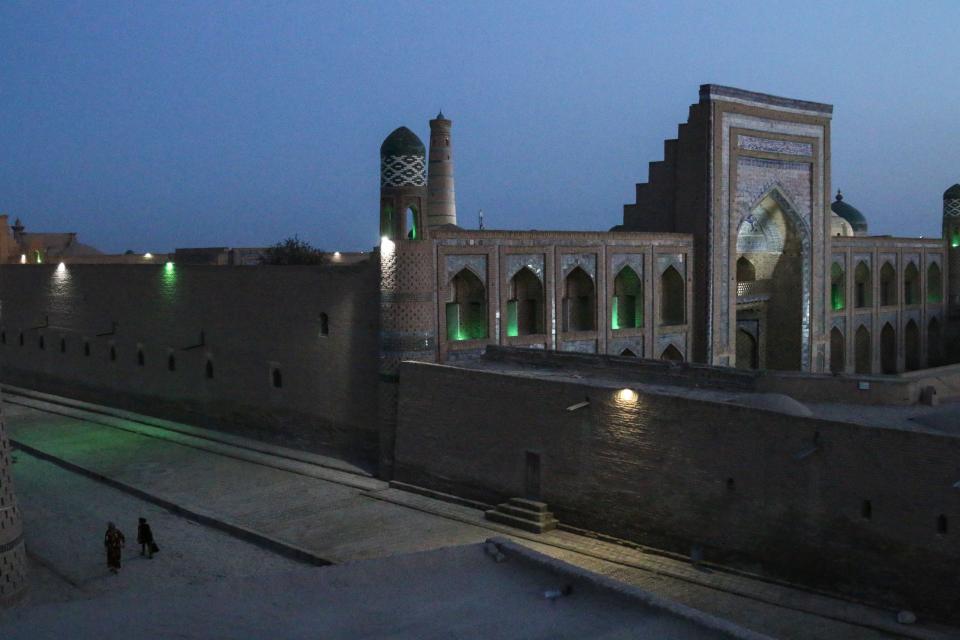I went to Uzbekistan and could pass for a local: Here's why (sometimes) it's better to stand out as a tourist
Being immersed in the life, culture, and language of another country through the lens of a local is the experience that all of us in the backpacker community are chasing. But of course, being American – Korean-American, no matter where I go – I’m quickly outed as the tourist that I am, and relegated to the classic "tourist" experience.
So when I packed for my first trip ever to Uzbekistan, I squeezed everything into a small black backpack, tucked my money belt under my waistband, and left my baseball cap at home, as I usually do.
But this trip was different.
For one thing, there was a large Korean community in Uzbekistan. Through a tragic history of forced relocation and assimilation under Stalin, there existed a large, thriving Korean diaspora throughout Central Asia. So there I was in Tashkent, walking by Korean restaurants, Korean grocery stores, and of course, Korean churches. Home sweet home, and as long as I didn't open my mouth I was a local. Just another member of the local Korean immigrant population.
►Mexico: What it's like to travel to Los Cabos right now?
►Ditch the snow: Head over to Uruguay for some sun, sand y diversión
The first thing I noticed was that people left me alone when I walked outside. In cities like Mumbai or Casablanca, I got quite used to being swarmed by taxi drivers or hawkers from the moment I stepped outside my hotel. But not in Tashkent. Here, I was handed the local menu at restaurants, local prices at museums, and got absolutely no attention from people on the street.
The perks you miss out
But I soon realized that all of this anonymity meant that I didn't get to experience the same perks enjoyed by other tourists. Uzbeks are amazing hosts and will go out of their way to be helpful and courteous to visitors. Tourists enjoy the best seats in restaurants, the best produce at markets, and the best customer service from locals who are eager to give a good impression of their homeland.

One particularly memorable event from this trip was at the entrance of Khiva. Here, tourists are automatically offered the 120,000 Som ($11 USD) VIP class ticket to enter Itchan Kala, the walled portion of the city. This is a two-day ticket and grants full access to all the historic sites within Itchan Kala. Locals, on the other hand, can choose much cheaper options ranging from economy (50,000 Som) to standard (100,000 Som). I learned of this tier system the hard way when a German friend I was traveling with was able to pass through the turnstiles at Khiva’s watchtower, while to my dismay, the economy ticket I was sold refused to scan. An embarrassing situation which could have been avoided had I just bought the ticket tailored for tourists.

In the same vein, my evenings in Khiva were spent listening with envy to hostel mates telling heartwarming stories of being invited for tea with a family, or having their cash waved off at bazaars. All of these were experiences I had in past trips to places like India, Turkey and Morocco, but sadly missed out on here.
And this attitude towards foreigners isn’t unique to Uzbekistan, nor is it just about money. I’ve been to the famous border closure ceremony in Wagah, India, where tourists are quickly identified and ushered to shaded sections of the stadium for a more pleasant viewing experience. Or places like Sanliurfa, Turkey, where local shops are known to downright refuse payment from visitors as part of a cultural tradition that emphasizes hospitality and paying it forward.

This genuine spirit of hospitality is what gives a place its charm, and the feeling of being welcomed is one that sticks with you long after your trip is done.
All this to say, the anonymity and peace that comes with blending in is great and allows you to see a country and its people from a unique perspective. But you also miss out. You miss out on a lot of what makes travel amazing in the first place. Random acts of kindness, hospitality, conversations with strangers. Experiencing all this, at least for me, is what makes a trip authentic.
Joshua Jung is a writer based in Montreal who loves to travel off the beaten track and write about all things travel, health, and sustainability.
This article originally appeared on USA TODAY: Solo travel: Why it's better to look like a tourist, get the perks

